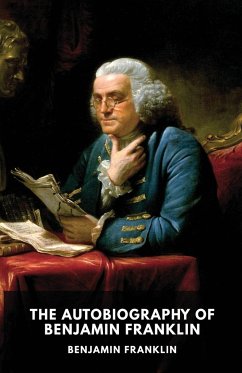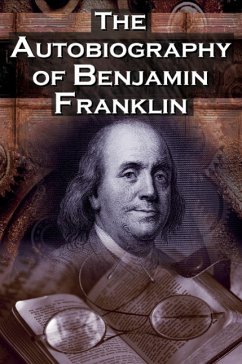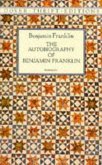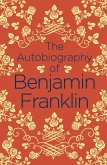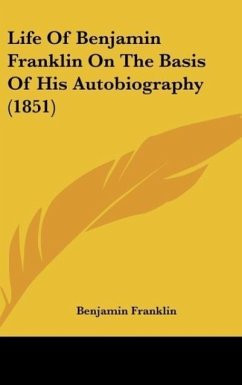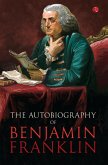Blessed with enormous talents and the energy and ambition to go with them, Franklin was a statesman, author, inventor, printer, and scientist. The Autobiography of Benjamin Franklin is the traditional name for the unfinished record of his own life written from 1771 to 1790. Although it had a tortuous publication history after Franklin's death, this work has become one of the most famous and influential examples of an autobiography ever written. Franklin's account of his life is divided into four parts, reflecting the different periods at which he wrote them. There are actual breaks in the narrative between the first three parts, but Part Three's narrative continues into Part Four without an authorial break (only an editorial one). In the "Introduction" of the 1916 publication of the Autobiography, editor F. W. Pine wrote that Franklin's biography provided the "most remarkable of all the remarkable histories of our self-made men" with Franklin as the greatest exemplar. The Autobiography remained unpublished during Franklin's lifetime. In 1791, the first edition appeared, in French rather than English, as Mémoires de la vie privée de Benjamin Franklin,published in Paris. This translation of Part One only was based on a flawed transcript made of Franklin's manuscript before he had revised it. This French translation was then retranslated into English in two London publications of 1793, and one of the London editions served as a basis for a retranslation into French in 1798 in an edition which also included a fragment of Part Two. The first three parts of the Autobiography were first published together (in English) by Franklin's grandson, William Temple Franklin, in London in 1818, in Volume 1 of Memoirs of the Life and Writings of Benjamin Franklin. W. T. Franklin did not include Part Four because he had previously traded away the original hand-written holograph of the Autobiography for a copy that contained only the first three parts. Furthermore, he felt free to make unauthoritative stylistic revisions to his grandfather's autobiography, and on occasion followed the translated and retranslated versions mentioned above rather than Ben Franklin's original text. W. T. Franklin's text was the standard version of the Autobiography for half a century, until John Bigelow purchased the original manuscript in France and in 1868 published the most reliable text that had yet appeared, including the first English publication of Part Four. In the 20th century, important editions by Max Ferrand and the staff of the Huntington Library in San Marino, California (Benjamin Franklin's Memoirs: Parallel Text Edition, 1949) and by Leonard W. Labaree (1964, as part of the Yale University Press edition of The Papers of Benjamin Franklin) improved on Bigelow's accuracy. The Autobiography of Benjamin Franklin also became the first full-length audiobook in history, which was voiced by actor Michael Rye and released in 1969.
Hinweis: Dieser Artikel kann nur an eine deutsche Lieferadresse ausgeliefert werden.
Hinweis: Dieser Artikel kann nur an eine deutsche Lieferadresse ausgeliefert werden.

